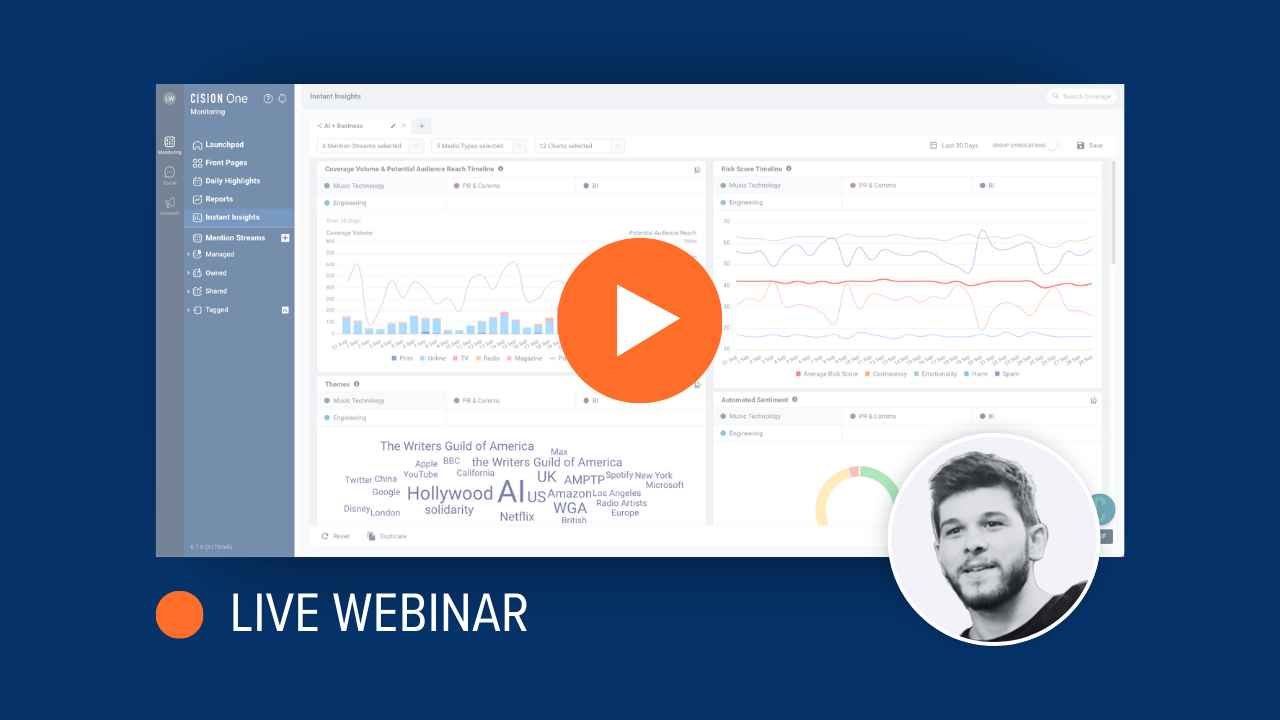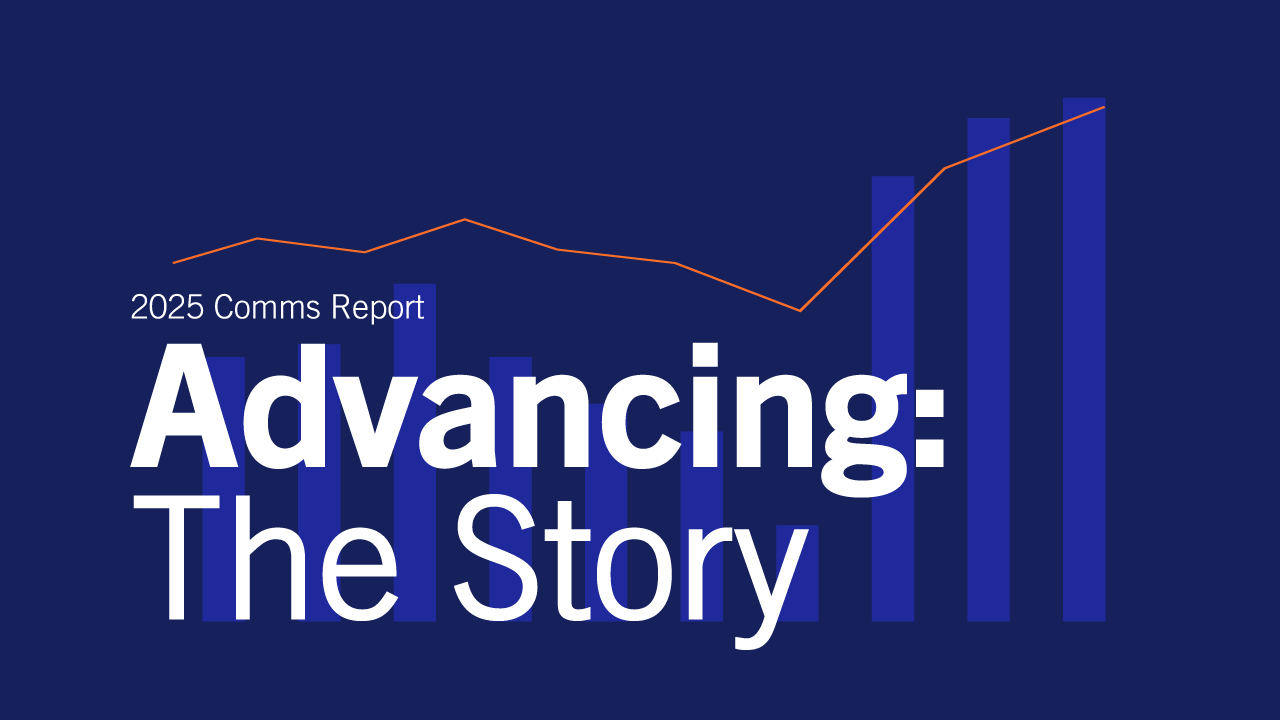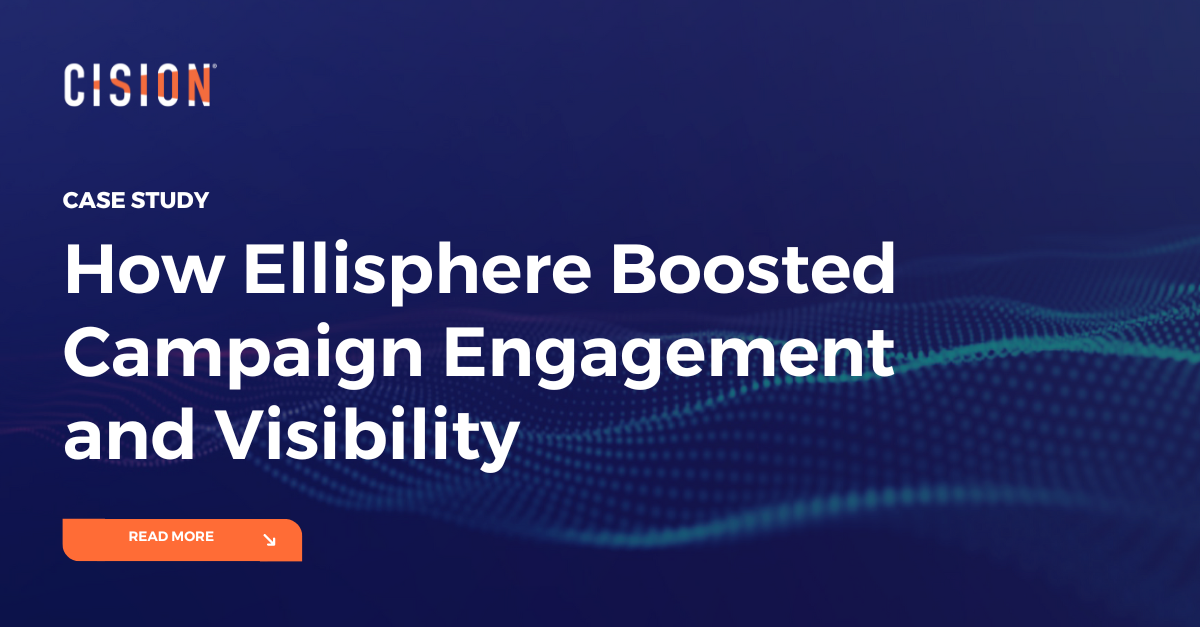
L-R: Kerry Sheehan, Lucy Linthwaite, Emma Thwaites and James Simmons
The third session of Cision’s CommsCon X Insights event centred on the growth of artificial intelligence (AI) within PR and comms. But while our imaginations conjure images of robotic automation and the rise of machines, the panel session had a very different emphasis. As James Simmons, Cision account director and session moderator, said: “PR has always been a ‘people business'”, and the human steer of new AI technologies proved the main theme running through the session.
By Andra Chezan, senior research analyst, Cision
AI is everyone’s responsibility
All three panellists agreed that the comms industry needs to embrace AI. Kerry Sheehan, AI in PR vice chair at CIPR, explained that the industry’s move toward a business advisory and consultancy model means there is no room for leaving development and innovation to the tech team alone. PR and comms professionals must get stuck into the data themselves if they are to keep up with other disciplines and seek ways to utilise new innovations to their benefit.
This was echoed by Emma Thwaites, CEO of Thwaites Communications, who emphasised the connection between AI and arts and humanities, citing the recent Oxford University announcement of a new centre studying ethics in AI. Meanwhile, Lucy Linthwaite, external relations leader at IBM, noted that it is key for PR professionals to get educated on the workings of AI, engage in a “learning and testing” approach and draw from uses in other industries to discover applications of the technology in communications.
New technology doesn’t need to be scary or unethical
Both Linthwaite and Thwaites discussed the fear and trepidation that surrounds AI. However, Linthwaite reminded the audience that AI already exists in our lives in many forms, be it in our homes, phones or cars. Thwaites noted that the “fear of tech is the riskiest thing we are encountering”, with people remaining cautious and averse to technology they don’t understand.
Developing a greater understanding of how AI works in practice was also considered the key to addressing ethical concerns, which was an undercurrent that ran throughout the panel. Kerry Sheehan acknowledged that “bias in data is inevitable”, but that communicators simply need to be comfortable where that data is coming from in order to mitigate any impacts and place results in their correct context.
She also noted that people using AI must become “guardians of the truth” offering clarity to partners and customers to ensure that the lines between human and automated elements are well understood.
Artificial intelligence requires human enrichment
Finally, the panel all agreed on the essential role practitioners play in managing, enriching and making sense of the AI-assisted processes we use every day. Kerry Sheehan noted an example of American airline JetBlue, which used AI only as a means to better understand and improve the human elements of its customer service.
She explained that the airline has a sentiment algorithm flagging negative social content – but that this automated process actually empowers customer service representatives, allowing them to respond to issues more efficiently as they arise and increase customer satisfaction.
The session served as an important reminder not only of the power new technology can afford us to success in our jobs, but also our ability to direct and fully utilise it. Ultimately, we have agency over the technology we create and innovate, we dictate how and when to use it, and we decide whether to push the button or pull the plug on the machine.
About Guest Contributor
We welcome opinion content and other article submissions from the earned media community. If you are interested in submitting a piece for the Cision website, please email prnews@cision.com.
Learn More. Do More. demo new
PR Tips, Case Studies, and Product Updates

[On-Demand Webinar] The Next Generation of Media Intelligence: From Gorkana to CisionOne
Explore CisionOne, a revolutionary media intelligence platform, and the evolution of Gorkana. Learn key features and strategies from Luke Williams, CisionOne Product Marketing Manager. Elevate your media outreach to new heights!


